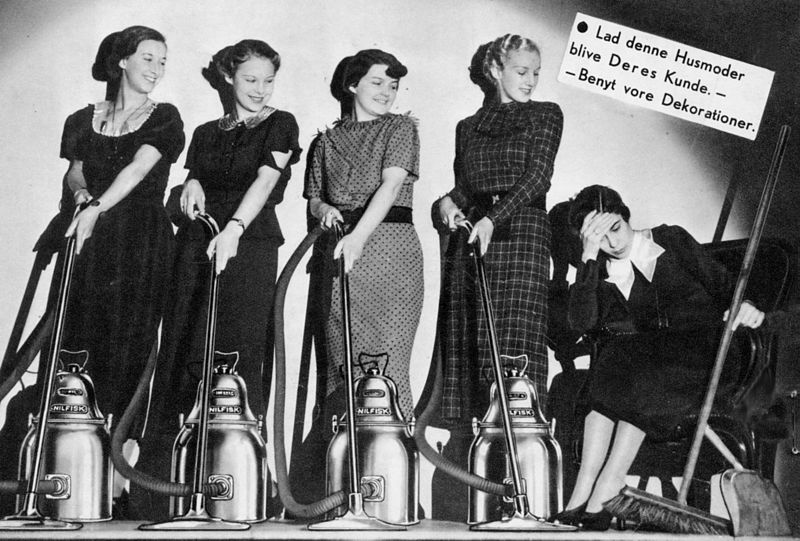
Evidence of a lesser-known invasion by the Daleks. It was a dismal failure; turns out they were all allergic to cat dander.
Earlier this week, an article entitled How to survive as a SAHG (stay-at-home girlfriend) was making the rounds on Twitter, and elsewhere in the social-media-verse. It starts off innocently enough, with the author explaining that she was laid off last year, and offering her tips on how to get through a patch of unemployment without losing one’s mind. In retrospect, the first red flag should have gone up for me when I read “…I’ve always been someone who’s really into keeping her boyfriend happy (that’s how I was raised)…†in the first paragraph. This clause is flag-worthy for two reasons. One: the implication that being “really into†keeping one’s significant other happy is a special characteristic—don’t we all want the people we love to be happy? And two: “that’s how I was raised†seems odd in this context, as this is a sentiment most typically employed to describe social niceties, like not swearing in public (obviously, an upbringing I lacked).
While it’s true that women tend to develop a sense of their responsibility in relationships early on in life, I wonder at how many are explicitly raised for the purpose of creating happiness for a man they’ve yet to meet, and of those who are, how many might be happier with their lives if they decided on this arrangement of their own accord, and not simply because “that’s how I was raised,†like being in a relationship is on a level with going to church and keeping your elbows off the dinner table. “That’s how I was raised†implies “this is all I know†and further “I am not interested in other people’s perspectives on this.†I have a problem with it not because I think it’s bad that people are raised in certain ways, or even because I think it’s wrong, but because I am of the opinion that successful, intelligent adulthood requires a questioning of the things one took for granted as a child, and even if one decides those values are all worth keeping, one should at least come to that conclusion independently.
Do you like irony? I like irony sometimes, when it’s funny, or when it’s apt, or when it serves a comeuppance to a person or institution in need of one. I’m less fond of irony when it fills me from boot-soles to eyebrows with aghast indignant eye-popping head-exploding what-the-fuck-fresh-hell-is-this rage.
This post is in regards to an instance of the latter.
See, Glamour magazine ran a survey — an exclusive survey — of more than 300 “women of all sizes,” in which they asked said women to “note every negative or anxious thought they had about their bodies over the course of one full day.” Glamour was shocked — shocked — to find that a “whopping” 97% of women admitted to at least one negative body thought each day.* The average participant expressed thirteen such thoughts a day.
Unsurprisingly, Glamour has the brazen arrogance to express astonishment at this development. The article calls these results “horrifying,” “disturbing,” “shocking,” “hateful,” and many other choice adjectives.
The points raised in this article are well known to anyone who’s thought critically about the cultural messages we constantly receive about our bodies, but are probably more dramatic to folks new to these ideas. Women are taught early on that self-reproach is admired while self-acceptance or self-love is not. We’re mired in unattainable beauty standards. We bond with other women over mutual body loathing. There’s even a neurological component. The article goes on to list tips for not hating yourself, as though overcoming a lifetime of cultural conditioning is as straightforward as keeping a journal and focusing on your “strengths”. Then it sort of comes apart with no real conclusion, just a collection of reported self-insults (“Fat-ass. Lazy bitch. I hate my thighs. I hate my stomach. I hate my arms.â€) followed by some quotes from the few women who didn’t report any body-negativity (“Taking ownership of your choices gives you power.”) and then it… abruptly ends.
First up, we have an article from the venerable New York Times on the use of primates for obesity research. They’re also being used for research into diabetes, diet drugs, and weight-loss surgery. What makes this interesting, however, is that the obesity is induced by overfeeding said monkeys high-calorie foods, and by keeping them confined in individual cages for months or even years so they cannot exercise (or socialize, for that matter). This actually seems to me to be less a matter of studying obesity than it is studying what happens when you confine an animal and overfeed it, which is not the general experience of most fat people. Are some people fat because of overeating and a lack of free movement? Sure. Are the majority? I do not think so; I know too many fats who defy this assumption. But of course, they could be liars:
…[U]nlike human subjects who are notorious for fudging their daily calorie or carbohydrate counts, a caged monkey’s food intake is much easier for researchers to count and control. “Nonhuman primates don’t lie to you,†said Dr. Grove, who is a neuroscientist. “We know exactly how much they are eating.â€
Of course, the fact that said researchers don’t know exactly how much human participants are eating would seem to indicate that perhaps the presumed connection between caloric intake and fattery is not so obvious, but what the fuck do I know? I’m not a neuroscientist.
So I pretty much skim Glee episodes on Hulu looking for Ashley Fink or Chris Colfer. I like the rest of the cast, I do, but their characters’ storylines either don’t interest me or lead to excessive eye-rolling. Luckily, Glee doesn’t need me to like it, as it’s doing fine on its own.
This week saw the first solo from the lady Zizes. Lauren sings The Waitresses’ “I Know What Boys Like”, which charted at #62 on the Billboard Hot 100 list in 1982. It’s a brilliant choice for Lauren, given the original’s deadpan delivery and self-assured swagger, to the extent that I now wonder if the character was specifically written to sing this song. Waitresses’ lead singer Patty Donahue had some legendary new wave sex appeal, so giving the song to Lauren is particularly conspicuous.
Yesterday the New York Times ran an article discussing the frequency with which interviews with famously beautiful women talk about what they eat. Or how they eat. Or about how they talk about how they eat, boy howdy, do they ever eat! I ate some food the other day and damn, I ate the shit out of it! I ate it until it was all up in my stomach and I was like digesting it and everything! I really do love eating, yes I do! Sometimes I even do it three times a day! EATING!
Go go gadget blockquote:
A writer meets a starlet for breakfast, lunch or dinner. The starlet, usually of slim and gamine proportions, appears to thwart our expectations by ordering and consuming, with conspicuous relish, a meal that might satisfy a hungry dockworker.
Such passages are widespread enough in the pages of American periodicals that at least one longtime film publicist, Jeremy Walker, has coined a term of art for them: the documented instance of public eating, or DIPE. Consider, for example, Cate Blanchett impulse-ordering a side of Parmesan-fried zucchini at a restaurant in London and impishly telling a writer from Vogue that she doesn’t intend to share: “I think we’d each better get our own, or things could get ugly.â€
Even when an actress doesn’t overtly chow down, it is not unusual for her to gush about her fondness for doing so.
The article goes on to cite examples of this phenomenon, from Drew Barrymore and Cameron Diaz’s shared love of macaroni and cheese to Padma Laksmi’s eating-in-bed GQ photo spread to, of course, Christina Hendricks, so thoroughly fetishized for her body at this point that even if she didn’t have body issues prior to landing the role on Mad Men, I’d bet she has them now. How much scrutiny, even so-called “positive” scrutiny, can one body take?
Real Live Hot Gamer Chix!: On female stereotyping in geek/gamer culture
By Lesley | February 15, 2011
This evening, I ran across an article on lady gamers that got me peroclating: Play girls: The life of a female gamer in Chicago. In the course of discussing a local gamer group, the author takes the popular route of trying to frame female geekery as an either/or situation — you can be in favor of the “sexualization†of ladygaming, or against it. Alas, if only the world were so easily reconciled. Says the article:
The idea of gamers’ flaunting their own female attractiveness–or “hotness” as many gamer sites call it–has divided the girl gaming community. Some gamers aren’t the least offended by the sexualization of their hobby, while others say that it harms gender equality in gaming.
[…]
“When I play online, I get a lot of comments like ‘Show me your boobs,’ ” [freelance video game writer Fruzsina Eordogh] said. “If a girl wants to be sexy, that’s fine, but I wish I wasn’t held to the same standards. I just want to play games, not be stereotyped.”
Part of why I quit playing MMOs* was because it became so difficult to reliably hook up with decent groups of people to play with. Sure, I could play with actual out-of-game friends, but if no one I knew was online, I’d get stuck trying to meet reasonable strangers. In the time before TeamSpeak –this was my golden era of MMO-playing — the gender question was easy enough to elide. My characters were always female in appearance, but dudes play as female characters all the time, and there were few enough Real Live Girls around in MMOs then that people tended to assume you were male — especially if you played “like a guy†and chatted “like a guyâ€. The fact that I have never played a pure caster class in my life and preferred to tank probably confused the issue even further.**
Sometimes I think I’m just a strange bird, my loves, and not only because I think of “Fat-Bottomed Girls” as a love song (and I do — it is also a sex song, and sex is often a part of love, though I affirm the right of others to take a different view of things — I can only speak for myself, after all).
My feelings with regard to Valentine’s Day are nonexistent, neutral, null; I have a lack of reaction to it. I usually forget that it’s happening. This has always been true. I have a romance problem, or rather a romance deficit. This is not to say that I have experienced a lack of romance, but that I lack an appreciation for romantic gestures. Passion, I understand. But romance has always made me vaguely uncomfortable. There is a pressure associated with being a female-identifying person on the receiving end of romantic shenanigans: I feel expected to giggle and coo, to blush and smile sheepishly, most of all, to be grateful. I’ve always felt a bit guilty about my lack of proper response to romance. Is my inner ladyness defective?
During the summer of 1997, between my sophomore and junior years of college, I spent four to five nights a week hanging out with a friend who’d recently broken up with a long-term partner. We usually spent time at my place, sometimes at his, listening to music and talking, sometimes watching a movie. Unfortunately, this led to my developing a brutal and overwhelming crush. Poetry was involved. Oh yes. At the end of the summer I revealed my feelings in my usual candid (albeit understated) way and suffered the worst response of all: the non-response. The “Oh, okay,” response. It was a tragic let-down, and no amount of copious props from my friends for my willingness to be honest could cushion the blow. I didn’t understand their amazement anyway: I had always been honest with people when I liked them. Sometimes it worked out; sometimes it didn’t.
Dear Ryan Murphy,
The last time I penned you a public missive, I had a few people observe that since you had not actually written the episodes of Glee that were receiving my rage, it was unfair to hold you responsible for every little thing that happens on your show. I beg to differ, given your Glee co-creator credit and your position on the tippy-top of the list of executive producers — so long as you are drawing the fattest paycheck for this series, I am going to hold your ass personally responsible even for minor wardrobe decisions. I just want to be clear on that.
However, if I am giving you credit for the negative I must also give you credit for the positive, and tonight’s episode, “Silly Love Songs,†had quite a bit of that. You did write this one, and having seen it, I think it’s safe to assume that you have plans for Lauren Zizes, but which none of the other writers understand, and so we wind up with a bunch of fat jokes in other episodes because how the fuck else do you write about a fat character, y’all? You write about how fat they are, of course! And what they eat.
“Silly Love Songs†begins with a lovesick Puck ruminating on his throbbing crush on Lauren, played by Ashley Fink (whom readers may also remember as Carter on Huge) with her usual tack-sharp comic timing. We get a behind-the-scenes look at their broom-closet makeout sesh — for those who haven’t been watching the show, it was by promising Lauren the fabled seven minutes in heaven that Puck convinced her to join the glee club in a prior episode. It turns out Puck is a lousy kisser (psshhht, I could have predicted THAT) and Lauren blows him off after only three minutes, explaining, “Yeah, you’re not turning me on at all.†Puck is bewildered and enamored. We hear his internal monologue as he stares at Lauren in class, “Maybe it’s because she’s constantly insulting me, like my mother. Maybe I just dig a chick with curves… I am in love with Lauren Zizes.â€
Gentlemen,
I read your webcomic. I’ve attended PAXs both East and Prime. I admire Child’s Play, your excellent charity organization. Calling myself a “fan” would probably be an overstatement, but I generally enjoy your work and have had little reason for second thoughts until recently.
I will not re-hash the series of events here — they extend back a good six months and given that other folks have already done the thankless work of timeline-assembly I will throw the uninformed in that direction. It shall suffice to say that you unwittingly upset some people, then made it worse by unwittingly mocking the people you upset, and then made it worse still by raising the mockery to mass-consumption levels, and some regrettable things have thus been said and done on many sides. I knew that some kind of apology or truce would be in the offing; it was a waiting game, for the simple reason that neither of you seem to be callous monsters. Sometimes the injured need only bide their time until the better part of humanity comes to the fore. The people you hurt, the people who experience this sort of shit on a regular basis, they are good at patience, and they are good at surviving — but they are not good at forgetting.
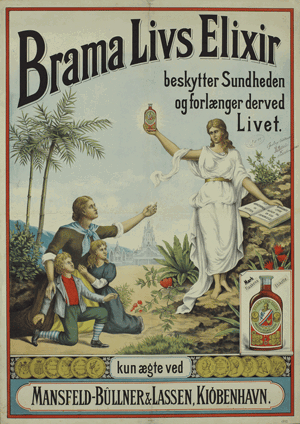 Hey, remember Contrave, the awkwardly-named Gleaming Hope For The Future Of All Diet Drugs? Remember how the FDA advisory panel recommended the FDA approve it in spite of lingering doubts about possible cardiovascular damage, and how we all need our cardiovascular systems in tip-top shape in order to live? Remember how the panelists were pretty candid that they were pushing for approval not because the drug actually worked, but because they were worried that rejecting it would kill obesity drug research? Oh, go read my post on that again, I’ll wait.
Hey, remember Contrave, the awkwardly-named Gleaming Hope For The Future Of All Diet Drugs? Remember how the FDA advisory panel recommended the FDA approve it in spite of lingering doubts about possible cardiovascular damage, and how we all need our cardiovascular systems in tip-top shape in order to live? Remember how the panelists were pretty candid that they were pushing for approval not because the drug actually worked, but because they were worried that rejecting it would kill obesity drug research? Oh, go read my post on that again, I’ll wait.
Hey, welcome back. It turns out that today the FDA has rejected — yes! rejected! — Contrave, telling Orexigen — the drug’s manufacturer — not to even bother crawling back with flowers and chocolates and a mouth full of apologies until they’ve run a large-scale placebo-controlled study proving that Contrave does not cause heart problems. Given that such a task would take years, it seems like Orexigen won’t be calling on the FDA again anytime soon.
As predicted, this will likely have a chilling effect on any new fat-drug research. In Forbes, Matthew Herper writes: “The field of obesity drugs is effectively dead.”
The clear lesson is that weight-loss medicines simply do not have enough of a benefit to justify any risk – and that this makes getting them approved just about impossible.
[…]
Weight-loss drugs are often appealing to individual investors, who are seduced by the idea of a mass-market pill to help people get skinny. But the fact that lots of people would take a drug to lose weight if one existed does not mean that such a medicine can be invented or approved by regulators. A lack of scientific knowledge, high regulatory hurdles, and the fact that these failures will keep drug companies from investing in new obesity research will probably mean years, if not decades, before another weight-loss drug makes it to market. (Source)
I’ve said it before, but hopefully this time it’ll be awhile before I need to say it again: diet drugs don’t work. The companies that research and manufacture them know it, the FDA knows it, and now you know it too. They don’t work because body size is a complicated issue influenced by a matrix of factors. Given that even drug companies motivated by enormous profits cannot find a drug-based solution, it seems more obvious than ever that weight loss is a convoluted process, if it’s even possible in the long term.
It’s a shame that this realization came too late for the people who have died or suffered permanent heart damage as a result of taking these drugs in the name of improving their health.



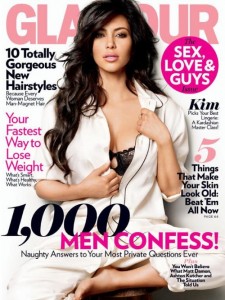
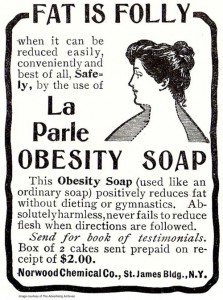
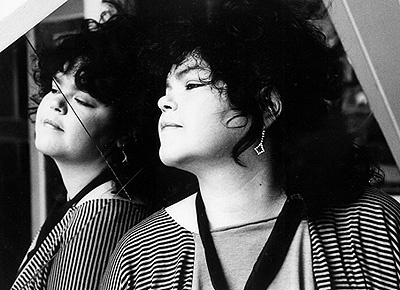


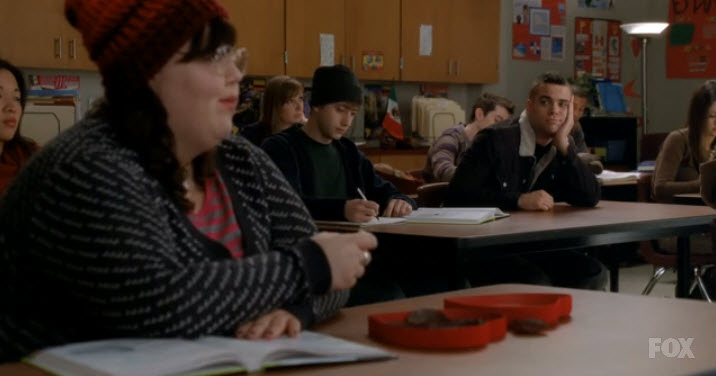

 Two Whole Cakes is a blog written by
Two Whole Cakes is a blog written by 

